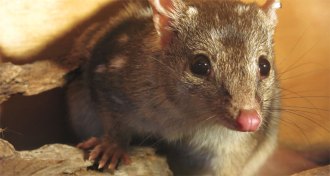Notebook
-
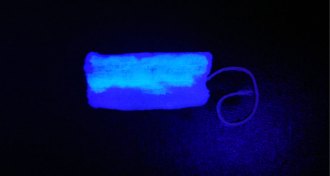 Environment
EnvironmentTampons: Not just for feminine hygiene
Tampons soaked in polluted water glow under UV light, revealing detergent-filled wastewater in rivers.
-
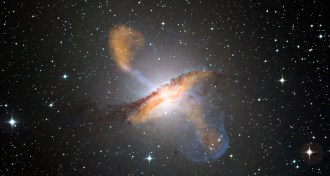 Astronomy
Astronomy‘Supernova sweeping’ cleans up a galaxy’s gas
Supernovas might sweep the remaining gas out of a galaxy after a supermassive black hole triggers the end of star formation.
-
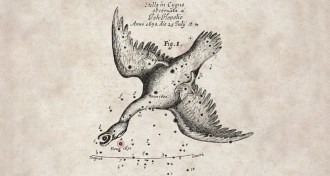 Astronomy
AstronomyEnigmatic 17th century nova wasn’t a nova at all
A nova observed in 1670 was actually two stars colliding, new evidence suggests.
-
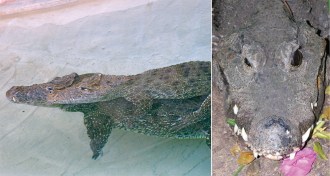 Animals
AnimalsPiggyback rides and other crocodile fun
We don’t know the playful side of crocodiles perhaps only because we haven’t looked.
By Susan Milius -
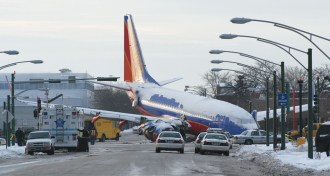 Climate
ClimateWinter storms 24 times as deadly as estimated
By ignoring car and plane crashes related to bad weather, U.S. tallies of winter storm deadliness severely underestimate hazard.
-
 Tech
TechPlans fizzled for nuclear-powered artificial heart
In 1965, researchers saw a nuclear-powered heart in the future.
By Beth Mole -
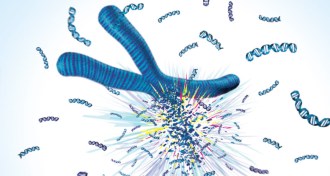 Genetics
GeneticsThe upside of a demolished chromosome
A woman’s rare genetic disease was cured when a chromosome carrying the mutant gene shattered.
-
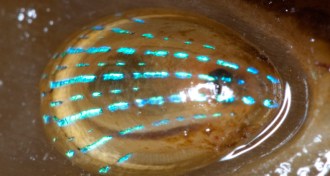 Animals
AnimalsSnail shell creates blue iridescence with mineral
Mollusk shines blue using calcium compound rather than organic molecule.
-
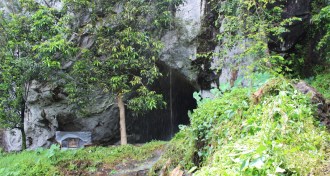 Anthropology
AnthropologyPeople moved into rainforests much earlier than thought
People lived year-round in rainforests well before previous estimates, an analysis of teeth excavated in Sri Lanka suggests.
By Bruce Bower -
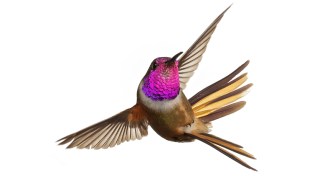 Animals
AnimalsHummingbird may get promoted
Not just a subspecies: A flashy, squeaky hummingbird should become its own species, ornithologists argue.
By Susan Milius -
 Genetics
GeneticsProtein comparisons proposed in 1960s for tracking evolution
In 1965, two scientists spotted molecular signatures of primate divergence. The tool became widespread for studying evolution – and one researcher’s career ended in crime.
-
